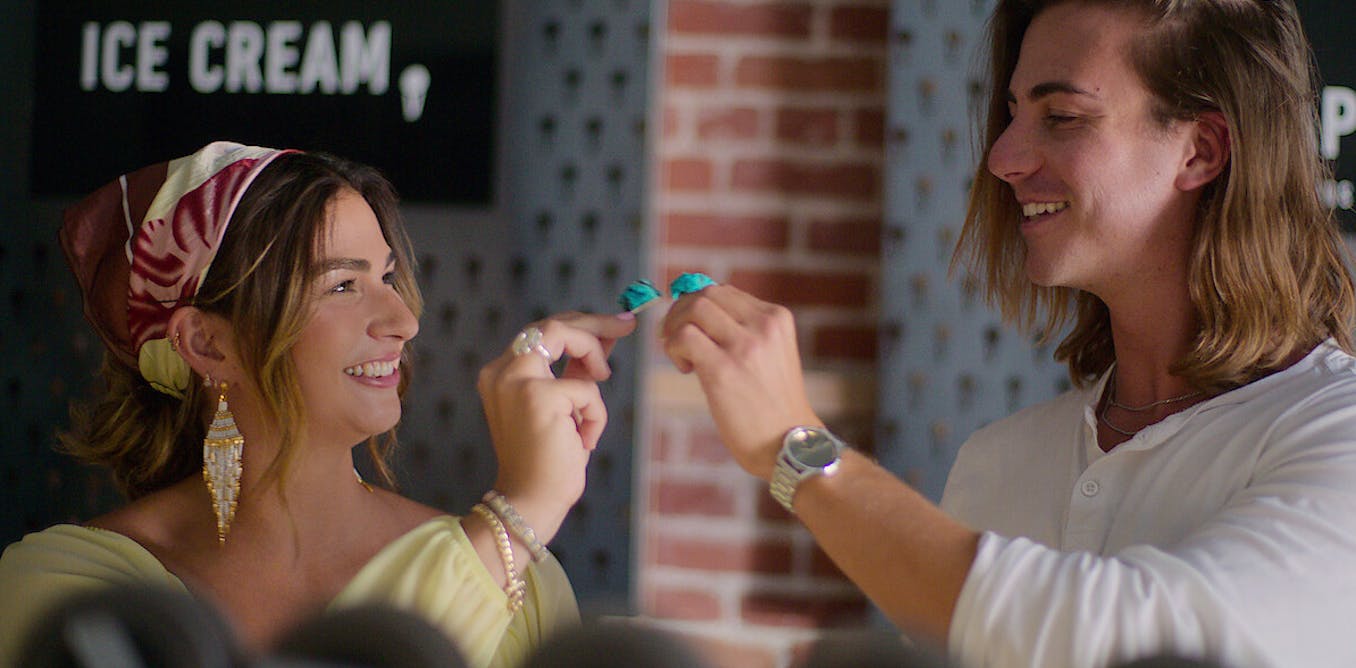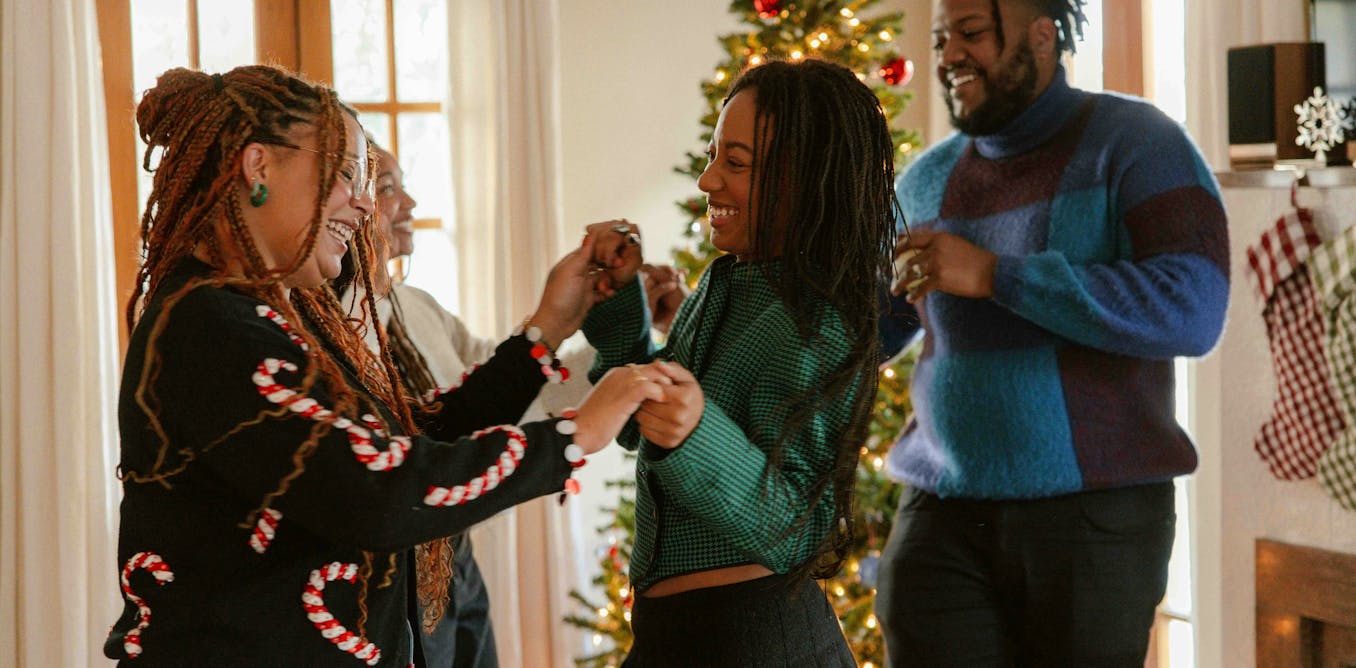While there have been popular TV shows featuring Jewish families or characters in recent years, gone are the Seinfeld days of benign Jewish cultural references mixed in with day-to-day banality wrapped into a 30-minute sitcom.
For example, episode 69 in the fifth season of Seinfeld, “The Bris,” gave mainstream English-speaking audiences a satirical taste of the mitzvah of circumcision in 1993 replete with snarky witticism and a classic Seinfeld charm.
Seinfeld stood out in a TV landscape where, for decades, depictions of Jewish characters in entertainment have been saturated with shtick, seldom moving further than a reliance on caricature and easily recognizable motifs.
My research and teaching focuses on Jewish storytelling in its many complex forms. As antisemitic attitudes have begun to proliferate in past months, I have started to worry that perhaps contemporary media is not selecting diverse enough portrayals to demonstrate how colourful Jewishness can be.
‘Exoticization’ frequently seen
The reinforcement of stereotypes and ethnic generalizations will invariably result in what noted postcolonial theorist Edward Said would have considered “exoticization.”
This is not to say that depictions of Jewish characters, themes and topics have only been stereotypes up to this point, but that many audiences previously relied on highly superficial information for understanding Jewishness.
With the revolutionary introduction of streaming media, the world of diversified storytelling has become a reality for viewers. Platforms like Netflix showcase the very best from around the globe, giving greater exposure to creators outside the previously American-dominated market.
For better or worse this has opened doors for Jewish stories to be shared more prolifically.
‘My Unorthodox Life’
In the summer of 2021, Netflix released My Unorthodox Life, a reality TV series chronicling the salacious and audacious comings and goings of Julia Haart, formerly Talia Leibov, a fashion designer and entrepreneur who abandoned her observant life in the Charedi Jewish community of Monsey, N.Y., for a world of glitz and glamour in Manhattan.
The show, consisting of two seasons, paints an oppressive picture of life in the Charedi community that has been critiqued by community members calling for a more balanced depiction. For those unfamiliar with Orthodoxy, portrayals like this can be misleading.
If one were to believe this sensational depiction, it would be to assume that Haart and her children were liberated from tyranny. A more critical eye would read this show as an attempt to present the provocative family as the “kosher Kardashians” of streaming media.
Charedi communities, seeking self-reliance and separation from secularism by nature, are being vilified by such portrayals, prompting some women to speak out against the stereotype of the subjugated women.
‘Unorthodox’
In this, My Unorthodox Life is not alone. Deborah Feldman’s 2012 memoir, Unorthodox: The Scandalous Rejection of My Hasidic Roots, enraged many Jews, Hasidic and not, rallying some to publicly condemn the portrayal of religious observance. This outrage was reignited again when Feldman published her second book Exodus: A Memoir in 2014.
In 2020, Netflix released the German-made miniseries adaptation of Feldman’s memoir. For people largely cooped up at home during COVID-19 lockdowns, this timing facilitated binge-watching of Israeli actress Shira Haas’s captivating performance as the narrative’s protagonist.
The series resulted in a Golden Globe nomination for Haas, and the replacing of her image on the book’s cover for subsequent printings of the book. Again, Orthodoxy was portrayed as a life to be escaped.
When I teach Feldman’s memoir in my undergraduate courses, I always pair it with the 1997 documentary, A Life Apart: Hasidism in America, by Menachem Daum and Oren Rudavsky, narrated by Leonard Nimoy and Sarah Jessica Parker. My goal is to balance perceptions and provide a more informed perspective regarding religious observance.
‘Jewish Matchmaking’
More recently, the popularity of matchmaking reality-TV programming on Netflix has garnered attention. Following the success of the 2020 Netflix original Indian Matchmaking, featuring matchmaker Sima Taparia, a Jewish twist was added to the same concept.
In 2023 Jewish Matchmaking, hosted by Israeli-American relationship coach Aleeza Ben Shalom, was released. Ben Shalom, was raised in an American Conservative Jewish family, and only began to be observant in her 20s. Ben Shalom wears a sheitel (a hair covering), keeps kosher and does not shake hands with men. The show is managing to significantly diversify the portrayal of Jewishness for modern audiences.
Some of the hopefuls on the show have Jewish identities based solely on cultural inheritance. Others are what is loosely termed “Conservadox,” locating themselves somewhere between the Conservative and Orthodox movements focused on observing traditions and holidays. Notably, observant communities are represented without the harsh judgement exhibited in the previously noted examples. Viewers meet Sephardi, Ashkenazi Jews and Jews with mixed heritage.
Instead of exoticizing Jewish portrayals, the series diversifies popular representation of what it is to be Jewish.
‘Rough Diamonds’
These, of course, are English-language examples. The Belgian limited series Rough Diamonds, released on Netflix in 2023, tells the fictional story of a secular man returning to his Charedi community for his brother’s funeral after decades without communication.
While the narrative does reference the protagonist’s desire to move away from his religious origins, it does so without the insinuation that there has been some kind of harrowing escape. In fact, the family is predominantly welcoming, and is accepting of the protagonist’s non-Jewish son.
Honest, nuanced portrayals needed
Perhaps the question is not about how better to provide viewers with an objective and nuanced portrayal of Jewish identities, but how to do this for any cultural or religious group.
I often hear students hotly debate where to draw the line between appreciation for the unfamiliar, and the consumption of exploitative cultural exoticism. I think Feldman’s memoir is a valuable contribution to discourse on Jewish topics, and I loved the miniseries adaptation. I will add, however, that while the memoir is non-fiction, Feldman details her own truth — not the truth of others.
Nonetheless, both My Unorthodox Life and Unorthodox, when taken out of informed contexts can be dangerous. A lack of knowledge, coupled with sensationalized stories of escape, paints an unflattering portrait of religious Judaism. When such voices dominate the conversation about what it is to be Jewish, then those watching from the sidelines have a distorted view.
When taken to this extreme, I can see how individual stories could fuel prejudice instead of just being appreciated as entertainment.

The post “‘Jewish Matchmaking’ offers a nuanced portrayal of some of the diversity of Jewish life” by Regan Lipes, Extended Sessional Instructor, English and Comparative Literature, MacEwan University was published on 06/24/2024 by theconversation.com



































